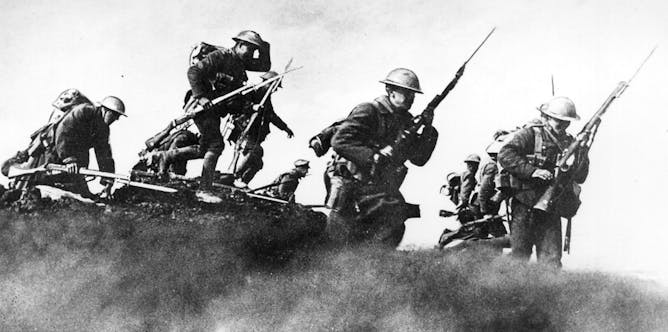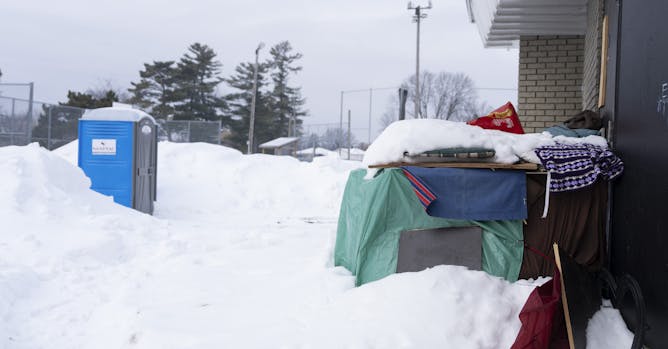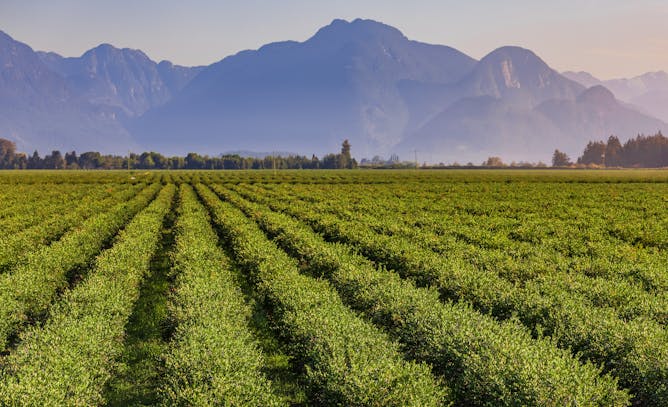|
As Russia’s invasion of Ukraine enters its third year, the war’s tactics increasingly seem to match scenes from the First World War: soldiers huddle in trenches along stagnant front lines and navigate intense barrages.
Beyond trench warfare, however, the conflict resembles the strategic, operational and tactical situation faced by Allied commanders immediately before the 100 Days Offensive, and its lessons remain applicable to contemporary wartime political and military leaders.
Today in The Conversation Canada, John Long Burnham from the University of Alberta discusses the 100 Days Offensive and what insights it can provide us on the situation in Ukraine.
Also today:
|

Soldiers climb out of trenches in this First World War photo. The successes of the 100 Days Offensive in 1918 were influenced by the Allies’ reliance on a strategy of maximum effort, flexible campaigns and advances in tactics.
(CP PICTURE ARCHIVE/AP)
John Long Burnham, University of Alberta
Ukraine can borrow lessons from the First World War as the war with Russia enters its third year.
|

Evidence of arson during the attack on Kibbutz Be’eri, Israel on Oct. 7, 2023.
(J. Rozdilsky)
Jack L. Rozdilsky, York University, Canada
Bearing witness to the displaced victims of the Oct. 7 attack on Kibbutz Be'eri carries a burden of responsibility to observe and document
|

People who have lived experience in child welfare systems have
higher rates of homelessness. A homeless tent is seen in a park in Saint-Jerome, Que. on Jan. 25, 2024.
THE CANADIAN PRESS/Christinne Muschi
Jacquie Gahagan, Mount Saint Vincent University; Dale Kirby, Memorial University of Newfoundland; Kristyn Anderson, Dalhousie University; Steven Smith, Saint Mary’s University
Canada needs to focus on tracking, monitoring and evaluating the economic, health and social outcomes of former youth in care, especially as they transition from government care.
|

Regenerative agricultural strategies can reduce the greenhouse gas emissions from food production, restore local ecosystems and enhance community well-being.
(Shutterstock)
Saeed Rahman, University of The Fraser Valley; Natalie Slawinski, University of Victoria
In the face of growing social and environmental challenges, organizations in the food and agriculture sector are increasingly turning to nature for inspiration.
|

People walk on the snowless streets of Place Jacques Cartier in Old Montréal on Jan. 3, 2024. February 2024 was the warmest February in human history.
THE CANADIAN PRESS/Ryan Remiorz
Fayola Helen Jacobs, University of Minnesota; Candis Callison, University of British Columbia; Elizabeth Marino, Oregon State University
Climate change is often seen as solely a technical problem. This is a misguided belief. Understanding how to build a better world begins, and ends, with understanding the societies which inhabit it.
|

Dans les organisations, il est encore difficile de mettre en oeuvre des programmes destinés à atténuer les inégalités entre les hommes et les femmes.
(Shutterstock)
Denis Monneuse, Université du Québec à Montréal (UQAM)
Les inégalités entre les sexes persistent sur le marché de l’emploi, malgré diverses mesures légales et initiatives managériales. Le problème se situe lors de leur mise en œuvre dans les organisations.
|
Culture + Society
|
-
Bolaji Owoseni, University of Cambridge
New research on Ilorin in Nigeria provides insights into regional socio-political developments prior to the 19th century.
|
|
Health
|
-
Katherine Drabiak, University of South Florida
Alabama’s case began when three couples sued an IVF clinic where their frozen embryos had accidentally been dropped.
|
|
Science + Tech
|
-
Jamie Pringle, Keele University; Alastair Ruffell, Queen's University Belfast; Ruth Morgan, UCL
Despite advanced technology and search techniques the rugged seafloor can hide objects much larger than a plane.
|
|